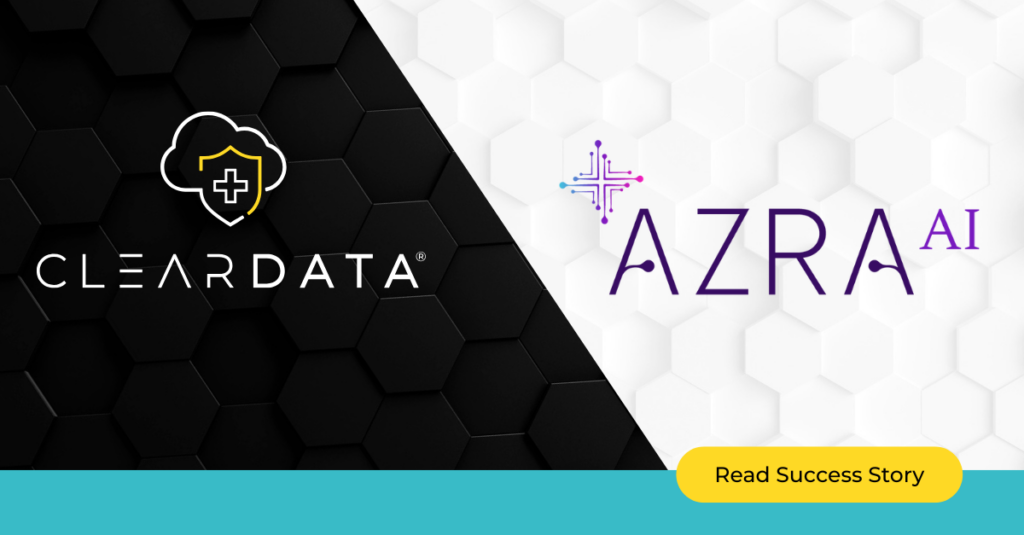How to Secure Healthcare’s Shift to the Cloud: Threats, Solutions & Compliance
At a Glance
- Healthcare cloud adoption is surging to improve scalability, efficiency, and patient care—but it’s also increasing exposure to threats like data breaches, misconfigurations, and third-party risks.
- Protected Health Information (PHI) is a top target, and with the average organization using 1,295+ cloud services, staying compliant with HIPAA, HITRUST, and GDPR is more critical than ever.
- This guide outlines key risks and best practices—including real-time monitoring, encryption, vendor assessments, and partnering with specialized cloud security providers to protect sensitive data and ensure compliance.
Securing Healthcare’s Shift to the Cloud
The shift to cloud computing in healthcare has become a critical transformation, offering unprecedented opportunities to enhance efficiency, scalability, and patient care. However, this move is not without its challenges.
If healthcare organizations fail to implement adequate protections, they risk devastating breaches that could compromise patient privacy and trust. We will explore the inherent risks, challenges, and solutions for securing cloud environments while maintaining compliance with industry regulations.
Why Cloud Adoption Is Booming in Healthcare
Healthcare organizations are increasingly leveraging cloud services to reduce costs, improve operational efficiency, and enable better data sharing. The global healthcare cloud computing market is expected to grow from $40.4 billion in 2024 to $45.6 billion in 2025 (CAGR ≈ 12.7%), reaching over $89 billion by 2029
The benefits are clear—cloud technology improves collaboration among care teams and enhances access to patient information, all while driving innovation in care delivery. However, with this convenience comes risk. Protected health information (PHI) is a prime target for cybercriminals, and inadequate cloud security measures can leave organizations exposed to significant threats.
The Hidden Risks in Healthcare Cloud Services
Many healthcare providers underestimate the risks posed by cloud services or assume the cloud provider will handle all aspects of security. This misunderstanding of the shared responsibility model has left countless organizations vulnerable.
With these gaps, healthcare data becomes an easy target for attackers. Failure to address these vulnerabilities can lead to costly breaches and compliance fines.
Healthcare data has immense value on the black market, fetching up to 10 times more than credit card information. This is because patient records often include social security numbers, insurance details, and medical histories, all of which enable identity theft and fraud. The rising cost of data breaches is hitting critical infrastructure hard, and healthcare organizations are bearing the brunt. In 2024, the average cost of a data breach soared to $4.88 million, with healthcare leading the pack at $9.77 million.
These numbers spotlight the urgent and growing challenges in healthcare cybersecurity. How can the industry address these threats and protect sensitive patient data? Explore the key issues and solutions now.
Top Cloud Security Challenges in Healthcare
Cloud environments introduce unique security challenges, especially in the healthcare sector. Here are the primary hurdles decision-makers must address:
- Complex Cloud Ecosystems: Recent data highlights just how complex cloud environments have become for modern enterprises. In 2025, the average organization is using approximately 1,295 distinct cloud services, ranging from infrastructure and platform tools to a wide variety of SaaS applications (spacelift 2025).
- Multi-Cloud Security Challenges: Managing security across multiple cloud platforms brings significant complexity—each environment has its own identity models, APIs, tooling, and configuration standards. Indeed, misconfigurations are a top cause of cloud security incidents: cloud misconfigurations account for approximately 32% of runtime breaches , and in multi-cloud settings, 69% of organizations report struggling to maintain consistent security and data protection due to unforeseen misconfigurations or sensitive data exposure (Sentinal One).
- Multi-Device Access Risks: Bring-your-own-device (BYOD) policies and mobile use increase exposure to unauthorized entry points.
- After-Hours Attacks: Nearly 73% of cyberattacks occur at night when security teams may be understaffed.
- Third-Party Vendors: Subcontractors and external vendors often lack stringent security protocols, escalating risks.
- Regulatory Pressure: Strict mandates like HIPAA and HITECH require meticulous adherence, leaving no room for error.
- Staffing Shortages: 1 in 7 healthcare IT pros report difficulty hiring qualified cybersecurity talent, citing it as an obstacle to adequate security.
Best Practices for Secure Healthcare Cloud Deployments
To stay ahead of evolving threats, healthcare organizations should implement the following best practices:
- Conduct Regular Risk Assessments: Frequently evaluate vulnerabilities across your system.
- Mandate MFA and Strong Passwords: These two steps alone can reduce unauthorized access significantly.
- Encrypt Data in Transit and at Rest: Ensure full encryption for sensitive data wherever it resides.
- Enforce Role-Based Access Controls (RBAC): Prevent unauthorized access by limiting user permissions to necessary roles.
- Apply Timely Patches: Always update software to mitigate emerging vulnerabilities.
- Use Real-Time Monitoring and Threat Detection: Deploy advanced tools to identify and neutralize threats instantly.
- Train Staff Continuously: Educate employees on credential hygiene, phishing scams, and other common cyberattack vectors.
- Implement Secure Backup and Recovery Plans: Regularly back up data and test recovery processes to ensure minimal disruption during breaches.
- Perform Third-Party Vendor Assessments: Verify that all vendors and partners comply with your security standards to prevent weak links.
- Ensure Compliance with Healthcare Regulations: Regularly audit systems to comply with HIPAA, GDPR, HITRUST, GxP, and other relevant healthcare data protection standards.
HIPAA Compliance in the Cloud: What You Must Know
Healthcare organizations must also prioritize compliance with the HIPAA Security Rule, which mandates robust safeguards for PHI. These include:
- Encryption: Encrypt all sensitive data to prevent exposure during breaches.
- Access Controls: Limit access to authorized personnel and monitor login activity.
- Audits: Regularly review system activity to identify suspicious behavior.
- Risk Analysis: Continuously assess potential risks and address them proactively.
- Security Assessments: Conduct regular security risk assessments to identify and mitigate vulnerabilities.
It’s also critical to share responsibility with cloud providers. For example, providers handle infrastructure-level security (e.g., physical data centers), while organizations need to secure actual workloads and applications.
The Role of a Specialized Cloud Security Partner
Navigating the complexities of healthcare cloud security requires expertise. Partnering with a specialized provider can alleviate many challenges by offering end-to-end security, compliance, and managed services. Providers like ClearDATA bring targeted solutions that address industry-specific risks, ensuring protection against APTs and compliance violations.
ClearDATA offers real-time monitoring, managed detection and response, and automated compliance reporting tailored to healthcare. With these solutions, organizations can focus on delivering top-notch patient care without compromising security.
Pro Tip: Download ClearDATA’s eBook: How to Build Secure, Compliant, and Scalable Cloud Operations for the ultimate blueprint to build a resilient and high-performing cloud infrastructure.
The Future of Healthcare Cloud Security
The evolution of healthcare cloud technology is inevitable. However, without proactive, comprehensive, and compliant security measures, this transformation stands on shaky ground. Protecting sensitive patient data requires urgent, meticulous action. Healthcare organizations must approach cloud security as a strategic necessity—not an afterthought.
Ensure your cloud environment is as secure as possible. Schedule a consultation with ClearDATA today and explore how their tailored healthcare cybersecurity solutions can support your organization in achieving robust security and compliance.
FAQ
What are the top cybersecurity threats facing healthcare cloud environments in 2025?
Healthcare organizations face growing threats like ransomware, cloud misconfigurations, phishing attacks, and third-party vendor vulnerabilities. The complexity of managing cloud infrastructure increases the risk of security gaps, especially when the shared responsibility model is misunderstood.
Why is healthcare data more vulnerable to cyberattacks?
Healthcare data includes highly sensitive personal and financial information—like medical histories, insurance details, and social security numbers—making it especially valuable to cybercriminals. These records can be used for identity theft and fraud, and breaches can be extremely costly to recover from.
How does multi-cloud usage impact security for healthcare organizations?
Using multiple cloud providers can introduce inconsistent security configurations, access controls, and monitoring tools. This makes it harder to manage vulnerabilities and increases the likelihood of data exposure or misconfigured resources—two leading causes of healthcare cloud breaches.
What is the shared responsibility model in healthcare cloud security?
It means your cloud provider handles the infrastructure, but you are responsible for securing your data, applications, and user access. Many healthcare organizations assume the cloud is automatically secure and don’t implement proper safeguards—leading to dangerous vulnerabilities.




